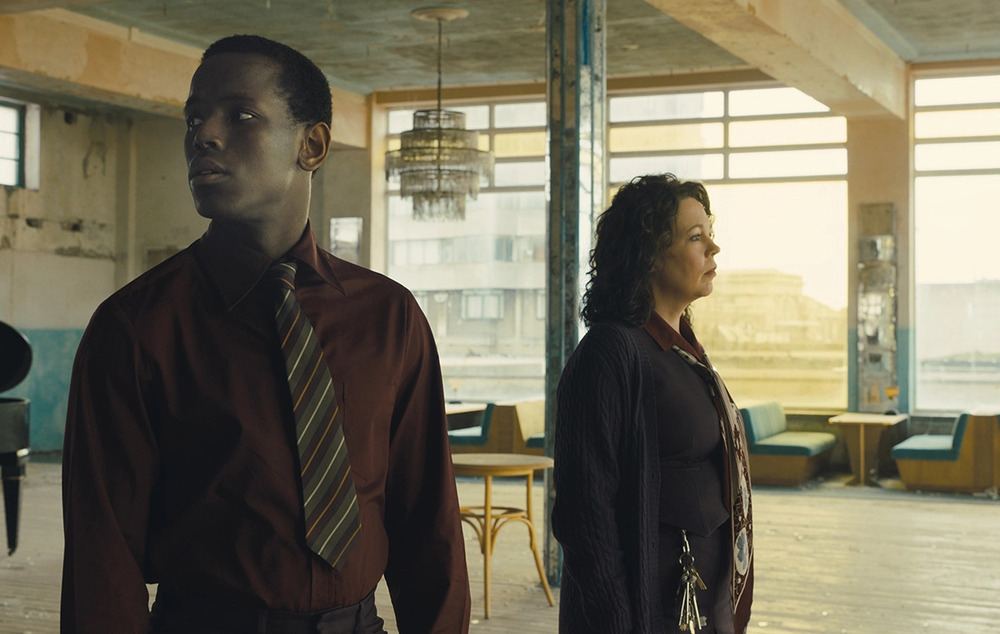Empire of Light

Micheal Ward and Olivia Colman star in EMPIRE OF LIGHT. (Photo: Searchlight Pictures)
As a wistfully nostalgic, almost elegiac salute to classic movie palaces, Empire of Light couldn’t be timelier.
This character-driven British period drama from Oscar-winning director Sam Mendes (1917) ambitiously combines disparate narrative threads about mental illness and cultural prejudice with highly uneven yet intermittently powerful results. Even when the narrative momentum wavers, the deeply felt performances keep it on track.
The setting is the early 1980s at the Empire, a once prestigious theater in a seaside town. There’s a ragtag staff headed by a stuffy manager (Colin Firth) who seeks to return the venue to its glory days. He also enjoys private “meetings” in his office with Hilary (Olivia Colman), an assistant manager who reluctantly accepts his advances.
Her insecurity stems from apparent psychological troubles from her past, but she’s charmed by Stephen (Micheal Ward), a young Black man who joins the staff and becomes fascinated with the history of the building, even as he endures stares and taunts from outsiders.
Their relationship evolves beyond co-workers and confidants, providing a happiness that both had found elusive, as Stephen finds a sense of belonging and Hilary discovers an outlet for her pent-up sexual frustrations. But then a downward spiral threatens everything.
Mendes’ screenplay veers into heavy-handed melodrama while vaguely revealing secrets from Hilary’s past and diagnosing her increasingly erratic behavior. Plus, it too often downplays pervasive Thatcher-era racism toward African immigrants in Great Britain through a contemporary lens of upstanding and empowerment.
However, Colman’s terrific portrayal is matched by the dynamic Ward (Blue Story) in the ability to balance external strength and inner vulnerability. Their understated performances alongside one another convey emotion as much through subtle glances and gestures as through dialogue.
The most vital character might be the theater itself. Although slightly dysfunctional behind the scenes and showing signs of decay, it carries decades’ worth of movie memories with its cozy seats, ornate décor, cramped projection booth, and throwback touches that recall a bygone era.
Sharply crafted with gorgeous cinematography, the film conveys a heartfelt affection for the cinematic experience. Sometimes when our real-life problems seem beyond our control, it’s OK to escape from them for a couple of hours in a dark auditorium.
In that regard, Empire of Light is ultimately a persuasive plea for tolerance and compassion that projects some beautiful cinematic imagery, even if it struggles to tie everything together.
Rated R, 119 minutes.